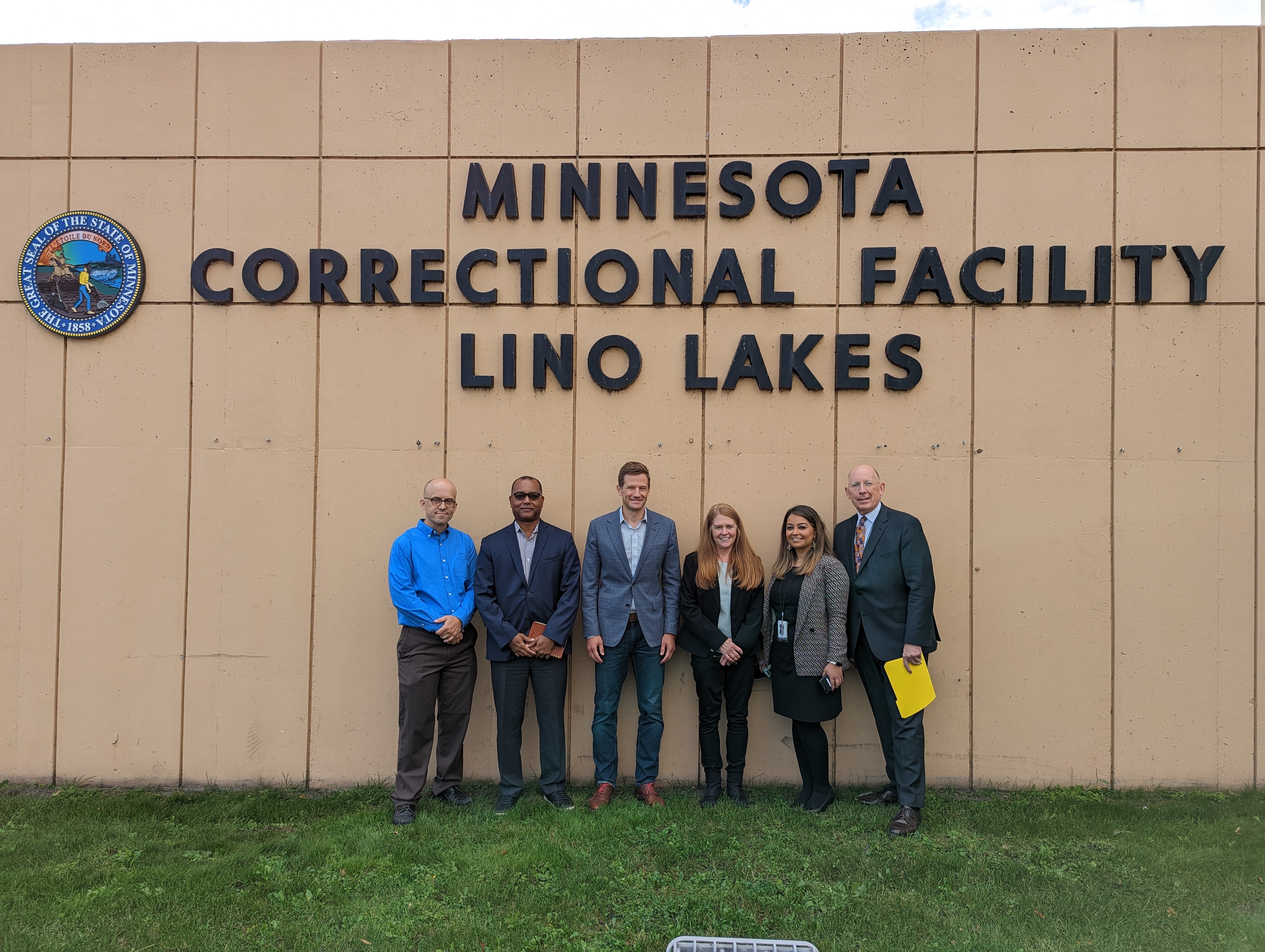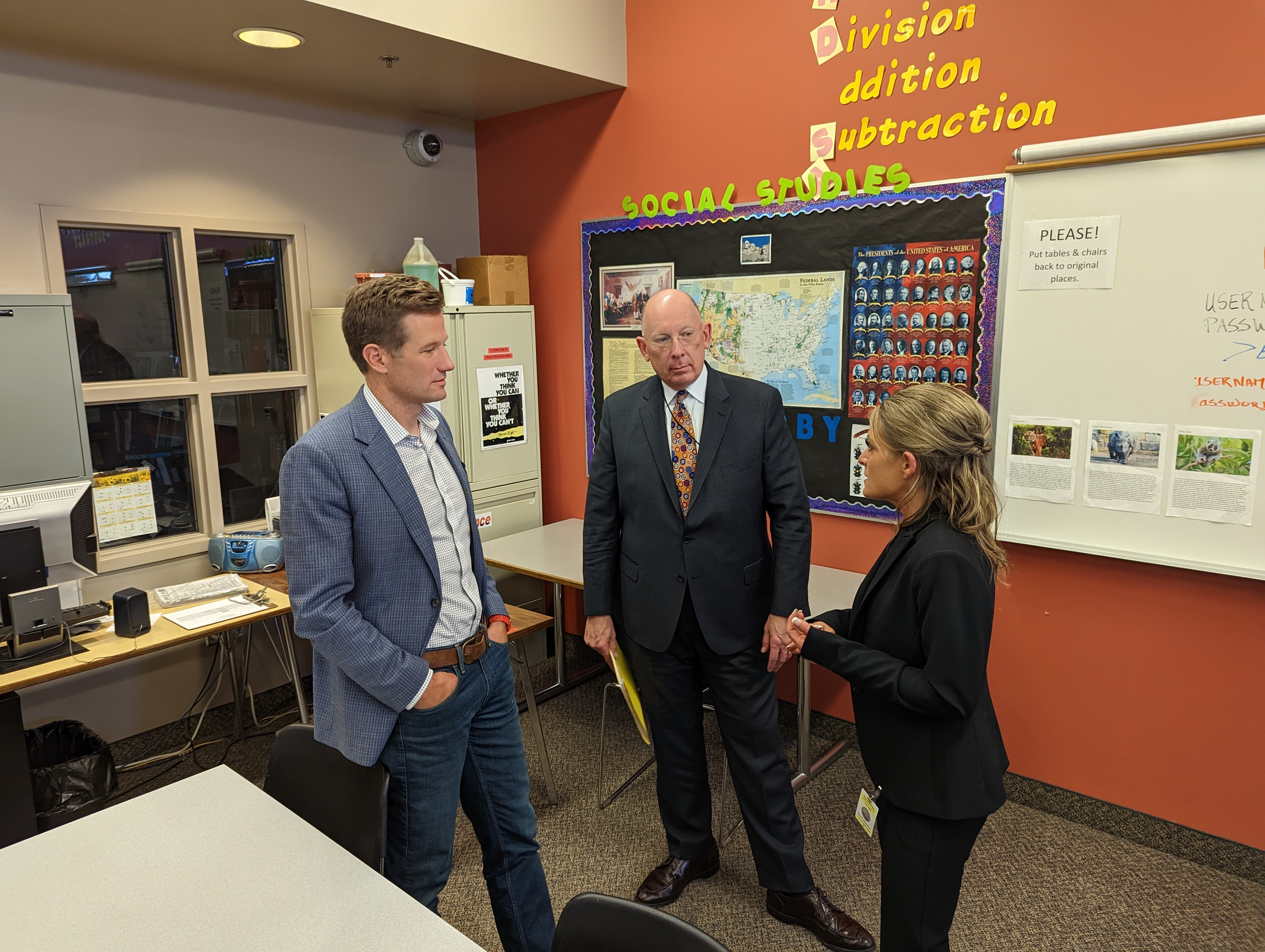10/5/2022 12:10:30 PM

Last week we capped off our Summer of Jobs Tour with a visit to the Minnesota Correctional Facility in Lino Lakes to highlight second chance hiring initiatives that support formerly incarcerated Minnesotans in finding meaningful employment.
Along with Minnesota Department of Corrections (DOC) Commissioner Paul Schnell and DEED Deputy Commissioner Marc Majors, we held a roundtable with employers, instructors and Minnesotans who were previously incarcerated to learn first-hand the benefits of hiring workers from the second-chance talent pool.
Our goal with the Summer of Jobs campaign was to help connect employers looking for workers with Minnesotans looking for work – especially people who might not be immediately on their radar. This reality is perhaps felt most acutely by Minnesotans who are formerly incarcerated. Helping Minnesotans who leave prison find good-paying jobs is a win-win for our people, our businesses, and our economy. Connecting a formerly incarcerated person to a good job is a major way to prevent reoffending – and it can provide dignity, purpose, and belonging for people looking to forge a new path in life.
DEED has a variety of workforce development and career readiness programs that help Minnesotans from all backgrounds – including people with criminal records – find jobs. One of those programs is the New Leaf Program, which is designed specifically for job seekers who are having a difficult time obtaining employment due to their barriers and/or records. This class offers special strategies for addressing and overcoming barriers to employment, including how, when, and why to disclose your record, addressing employers’ concerns, answering tough interview questions and more.

The DOC offers 14 full curriculum Career and Technical (C-Tech) classes and three certification programs to incarcerated adults – helping them prepare to reenter the workforce with in-demand skills in a variety of industries. One of the roundtable participants, Fredrick McGee, went through the Opportunity for Change program, which is grounded in evidence-informed practices and serves higher risk individuals to help with case planning, housing stability, and employment opportunities. During our discussion, Frederick noted he put in for 22 jobs and “got hired at all of them until the second interview” because of his record. He urged employers to “not judge a book by its cover. A lot of people didn’t think I would make it due to my background...” – but now, with support from Opportunity for Change, he works at Ace Auto Parts and owns his own landscaping and renovation business.
It’s stories like Frederick's that show how much potential former inmate populations have to contribute to our workforce, if just given a chance.
This event – and all of these Summer of Jobs tour stops – have been so engaging and inspiring to me these past few months. Our insightful conversations with local leaders, businesses and workers have been critical in helping DEED better understand what employers and job-seekers need right now in order to make our economy run at its maximum potential and to generate more equitable opportunities for all.
Check out our video from our visit to Lino Lake Correctional Facility here.
View all of our Summer of Jobs resources for job seekers and employers.
workforce
job training